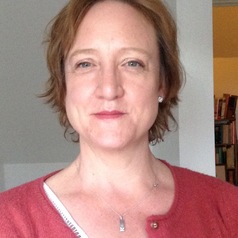
Sarah Lonsdale
Senior Lecturer in Journalism, City, University of London
Dr Sarah Lonsdale has been a journalist for twenty five years, training on the Reading Chronicle before joining the Observer newspaper in 1990 as a general reporter. During her time on the Observer she specialised in stories concerning social justice. She is now freelance and has written for a wide variety of publications including: Observer, Financial Times, Evening Standard, Daily Telegraph, Sunday Telegraph, Daily Mail, Independent on Sunday, Country Homes and Interiors Magazine, Observer Food Monthly, National Geographic Green and the Sunday Times. She was a weekly columnist for the Sunday Telegraph 2006 - 2015 writing about environmental issues, particularly the threat of climate change.
Dr Lonsdale holds a BA (Hons) and MA from the University of Cambridge in Modern and Medieval Languages (French and Italian). She recently completed her PhD, 'The Representation of Journalists and the Newspaper Press in British Literature 1900 - 1939' at the University of Kent. She holds a Post Graduate Certificate in Higher Education (PGCHE). She joined City University London in 2013 after six years as a lecturer at the University of Kent, teaching at the School of English and the Centre for Journalism there.
She is author of The Journalist in British Fiction and Film, published by Bloomsbury, July 2016.
Less ![]()

Sarah Maddocks
Lecturer in Microbiology, Cardiff Metropolitan University
The mainstay of my research is to investigate processes involved in the host-pathogen relationship as infection ensues. This includes characterisation of bacterial adhesions, transcriptional regulators, quorum sensing and virulence gene expression. I also use biofilm models to ascertain the effect of individual host environmental stimuli, such as iron restriction, on the developing microbial community and use in vitro models to determine the impact this might have during infection.
A different branch of my research focuses on novel antimicrobials and their efficacy against healthcare associated pathogens. Part of these studies are concerned with identifying antimicrobial targets to determine a mode of action and facilitate most appropriate use within the clinical environment, with the aim of preventing the emergence of strains that might exhibit resistance. I have ongoing research collaborations with Dr. Kevin Purdy (University of Warwick), Dr Andrew Collins and Dr Michele Barbour (University of Bristol), and Prof Simon Andrews (Reading University).
Less ![]()

Sarah Maessen
Research Associate, Auckland University of Technology
Dr Sarah Maessen is a Research Fellow in the Clinical Audit and Research team at Hato Hone St John. Her research spans a wide range of topics related to pre-hospital medicine with support from the Paramedicine department at AUT. She is particularly interested in how health practices can improve health equity.
Less ![]()

Sarah McDonald
Clinical Psychologist and Research Fellow, University of Nottingham
D Clin Psy, Master of Public Health, MA Psychology
Adult Mental Health work for 7 years in the NHS and private care
Researcher in Implementation science and healthcare research; moving to Nottingham Trent University in June 2016 to join the Centre for Children, Young People and Families (http://www.ntu.ac.uk/soc/collaborative_working/nccypf/index.html)
Blogger for http://www.thementalelf.net
Less ![]()
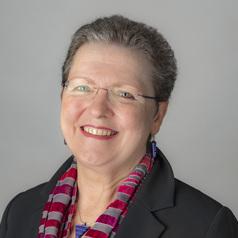
Sarah Neill
Professor of Nursing, University of Plymouth
Professor Sarah Neill is a Professor in Nursing in the School of Nursing and Midwifery, Faculty of Health at the University of Plymouth. Sarah is a children’s nursing academic with over 25 years’ experience in higher education, initially focussed on teaching and learning for the next generation of children’s nurses, then gradually more focussed on research. Sarah’s research is focussed on acute childhood illness in children under five years of age, predominantly in the home and in first contact health services, such as primary care and urgent and emergency care. She works collaboratively with parents and health care professionals to understand patient and professionals experiences, their decision making and to develop interventions to improve access to care for acutely ill children. Sarah leads the Acutely Sick Kid Safety Netting Interventions for Families (ASK SNIFF) research programme www.asksniff.org.uk and was the Chief Investigator on the Before Arrival at Hospital (BeArH) NIHR RfPB funded project https://www.northampton.ac.uk/research/before-arrival-at-hospital-bearh/. Sarah is a qualitative researcher with a specific interest in Glaserian grounded theory. Sarah chaired the Faculty of Health's Faculty Research Ethics and Integrity Committee from February 2020 until October 2021. Internationally Sarah co-chairs the International Network for Child and Family Centred Care and the Conference Planning Committee for the International Family Nursing Association.
Less ![]()

Sarah Niblock
Visiting Professor on the Doctoral Programme in Counselling Psychology, York St John University
Over 15 years’ experience of executive leadership as Chief Executive of UK Council for
Psychotherapy, Associate Dean of School of Media, Arts and Design, University of Westminster (London) and Head of Department and Professor at Brunel University London.
Established global reach as a journalist, broadcaster, author and academic, including regular
contribution to BBC (including multiple live radio appearances), Forbes, Huffpost, The Conversation, The Guardian, The Times, Cosmopolitan, British Medical Journal and numerous other titles. Monthly guest columnist and podcaster for Psychologies magazine until 2022. Sarah has spoken at prestigious arts, science and cultural
venues and festivals globally and served as the voice of universities in public ceremonies and in the press.
Less ![]()
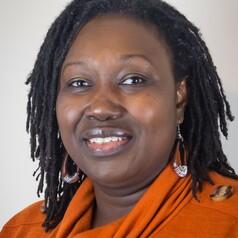
Sarah Njeri
Lecturer Humanitarianism and Development, SOAS, University of London
Sarah is a Research Fellow with the Humanitarian Policy Group. She is a peace and conflict scholar by training with more than 20 years' experience working on conflict prevention, post conflict peacebuilding, humanitarian disarmament, advocacy and development-related issues in Africa. Sarah’s previous research within the humanitarian sector has been in peace and development writ large especially on the adverse impact of explosive ordnances such as landmines and other explosive remnants in post conflict contexts. She therefore has vast knowledge of the branch of humanitarian sector that is mine action. While her regional research focus has been largely been the Greater Horn of Africa with extensive experience on Somaliland, Tanzania and Ethiopia, Sarah has also got research experience in Angola, Sierra Leone, and Cambodia.
Before joining ODI, Sarah was previously working at the African Leadership Centre (King’s College London) as a Research Associate on a project funded by the Global Research Challenges Fund project, that focused on developing a combined technological and socio-economic approach to freeing affected communities from anti-vehicle mines. She previously worked in various academic institutions in research management and administration roles.
Previously she has worked in the humanitarian aid sector, working on policy and advocacy issues with the Jesuit Refugees Service - Eastern Africa at the Regional office in Kenya.
Sarah has an MA in Conflict Resolution and PhD in Peace and Conflict Studies from the University of Bradford’s Peace Studies and International Development Department.
Less ![]()
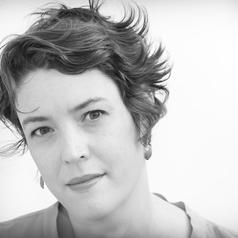
Sarah Percy
Professor of International Relations, The University of Queensland
Sarah Percy came to UWA from the University of Oxford, where she was University Lecturer in International Relations at Merton College. She writes widely on issues surrounding unconventional combatants, including mercenaries, private military and security companies, and pirates.
Less ![]()
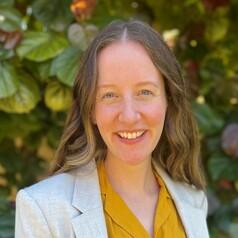
Sarah Pillar
Research Development Manager, Telethon Kids Institute
Sarah Pillar is the Research Development Manager at CliniKids, at the Telethon Kids Institute. Her role revolves around the intersection between clinical and research work - getting research into clinical practice, and shaping clinical questions into research projects. Sarah is a Speech Pathologist by background and she developed a passion for supporting autistic children and their families through working directly with families in metropolitan and country WA. Sarah has been involved in a number of research projects at the Telethon Kids Institute, including CliniKids breakthrough research into pre-emptive intervention for infants, which supports the development of social-communication skills prior to the child receiving a diagnosis. Sarah was also a member of the team that developed Australia's first National Guideline for Supporting Autistic Children in Australia.
Less ![]()
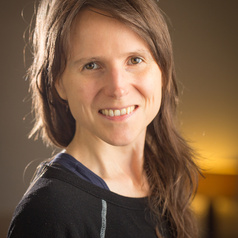
Sarah Pogoda
Senior Lecturer in German, Bangor University
Originally from the Bergische Land (Nordrhein-Westfalen), I studied German literature, history and communication at the Freie Universität Berlin. As part of my undergraduate programme I went on an Erasmus exchange to the University of Vienna. After my Magister Artium I completed a doctorate in German literature. Having worked as a tutor for GfL (German as a Foreign Language) in the private sector in Berlin, I went to the University of Sheffield as DAAD-Lektorin in 2012. In autumn 2016 I came to Bangor University.
Teaching
At the Freie Universität Berlin and the Humboldt Universität zu Berlin I offered several modules on Political Studies and German Literature of the 20th century. As a DAAD-Lektor at the University of Sheffield (2012-2016) I taught modules on contemporary German culture and media, post-wall German art, film and performance, as well as modules on contemporary German literature. Alongside this research led teaching, I have been teaching German language at all levels (ab initio to near native competence) since 2011. At Bangor University I continue teaching German language at all levels, as well as undergraduate and postgraduate teaching in my field of research expertise, this includes e.g. the modules "Culture in Context" (LXE 1600); "The German Film" (LXG 2008), "Performing Germany" (LXG 3036), "German Avant-Garde" (LXM 4037) and "Critical Theory" (LXM 4001).
In my teaching, I prefer to integrate artistic practices, such as Happenings and Creative Writing exercises. I do not only understand this kind of pracice based learning as best practice in teaching, but first and foremost, I want to show my students that the revolution starts with ourselves and inside ourselves. It is this revolution of the self which I consider as the key experience of life, and of university life in particular. I was nominated for the Special Recognition Award.
Research
My current research interests are 20th and 21st century Avant Garde, with a focus on performance. Here, my core research considers the German film maker, theatre director and actionist artist Christoph Schlingensief (1960-2010). In this regard I am also particularly interested in the political potential of art and how contemporary artist interfere in the public sphere.
I am also engaged in diversifying the critical thinking methods in academia by engageing with artistic research methods. In this context I co-founded the Avant Garde experimental art collective NWK, kindly supported by Deutsch-Walisische Freundschaft.
One further creative writing projects is a performative writing exercise in which both Welsh and German are explored in their shared knowledge about Fluxus art. For this purpose, I invented a new literary genre called "Verifiction". This critical method is informed by Avant Garde strategies and has shown suitable for uncovering hidden knowledge in language.
Further research interests lie in the interrelations of literature and architecture and, more generally, in the history, culture, politics and literature of post-1945 Germany, including the former GDR. In my doctoral thesis I look at metaphors of building and dwelling in post-war and contemporary German literature and culture. In addition I am interested in contemporary German literature in general.
Less ![]()
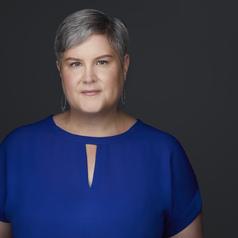

Sarah Rahimi
PhD Candidate in Business Administration and Management, Concordia University
I completed my Undergraduate Degree with Distinction from Concordia University in Honours Psychology with a Minor in Human Relations in 2018. During this time, I wrote a thesis on Hand-Eye Coordination and Manual Dexterity. After finding my passion for research, I decided to pursue an MSc Degree in Management at Concordia. I graduated from this program in 2020 with a GPA of 4.1/4.3.
My Master’s thesis focused on equity, diversity, and inclusion (EDI), analyzing the CEO gender compensation gap. My PhD thesis from 2020-2025 continues to investigate EDI, gender, and leadership, while focusing on dyslexia. I have presented at six conferences and won Most Popular Poster three times as well as the People’s Choice Award at Concordia’s 3MT Competition.
I am passionate about volunteering. I helped revise Concordia’s MSc Management Curriculum and Concordia’s GradProSkills Leadership Certificate. I volunteered as the Graduate Student Association (GSA) JMSB Director for two years and was on six GSA committees. For the past two years I have been the Graduate Student Representative for Concordia’s Council on Student Life.
The goal of my research is to spread awareness and contribute valuable insights to our community.
Less ![]()
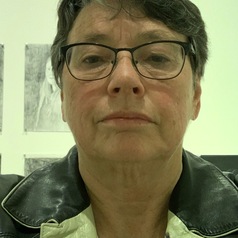
Sarah Redshaw
Senior Research Fellow, Charles Sturt University
Dr Sarah Redshaw has significant experience in social and health related research and an excellent ability to pull together varied data and perspectives and to work effectively with a range of stakeholders. She has carried out a number of social research projects with nursing, social work and community professionals working closely with them to develop the research and prepare reports. She has developed and managed projects on driving cultures – driving as a social and cultural practice, community resilience and inclusive education.
Less ![]()

Sarah Robinson
Postdoctoral Fellow, Pacific Institute on Pathogens, Pandemics and Society, Simon Fraser University
I'm a Postdoctoral Fellow at the Pacific Institute on Pathogens, Pandemics and Society at Simon Fraser University. I hold both a Doctor of Veterinary Medicine (DVM) and a PhD in Pathobiology with a Collaborative Specialization in One Health from the Ontario Veterinary College, University of Guelph. My research uses a One Health approach to understand and manage zoonotic and infectious diseases at the human-wildlife interface.
Less ![]()
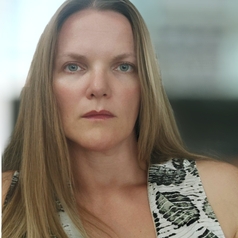
Sarah Rodriguez-Louette
Doctorante à l’Université Sorbonne Nouvelle, membre de la Chaire Unesco « Savoir Devenir à l'ère du développement numérique durable»., Université Sorbonne Nouvelle, Paris 3
Less ![]()
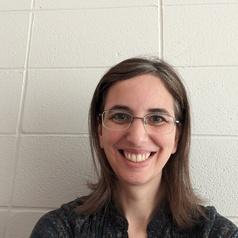
Sarah Sadavoy
Assistant Professor, Physics, Engineering Physics & Astronomy, Queen's University, Ontario
I'm a professor (since September 2019) at Queen's University in Kingston, Ontario. My research area is in the earliest stages of star formation and planet formation, including fragmentation processes, dust grain formation and evolution, gas chemistry and origins of life, the formation and evolution of protostars, the role of magnetic fields in star and planet formation, and the differences between low-mass and high-mass star formation. To explore these processes, I use observations from telescopes all over the world to investigate star-forming regions through continuum, spectral line emission, and polarimetry observations in the infrared, (sub)millimeter, and radio bands.
Less ![]()
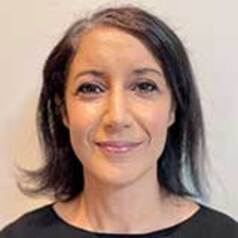
Sarah Sorial
Associate Dean Research Training and Performance, Faculty of Arts, Macquarie University
I am a Professor in Law at Macquarie University. Between 2008-2011, I was an ARC Post Doctoral Research Fellow at Macquarie University (2008) and the University of Wollongong (2009-11). Between 2011-18, I was a senior lecturer and Associate Professor in Philosophy at UOW. I completed my undergraduate degrees in philosophy (with honours) and law at Macquarie University, and was awarded my PhD in Philosophy from the University of New South Wales in 2006.
My research specialisation is primarily at the intersection of philosophy and law. Specifically, I am interested in how philosophical concepts can be utilised to address various and persistent legal dilemmas, including dilemmas about the limits of speech, the importance of democratic deliberation, the place of rights in liberal democracies, and more recently, the place of emotions in law. My book, Sedition and the Advocacy of Violence: Free Speech and Counter-terrorism, is a book length philosophical treatment of modern sedition laws in Australia, and the offence of 'glorifying terrorism' in the United Kingdom. Using established concepts in philosophy of language I demonstrated various problems with the current laws and made proposals for addressing them. I also developed a systematic analysis of the concept of harm and the nature of speaker authority in establishing harm. I have applied this account to other areas of contested speech, including hate speech, holocaust denial, pseudo-scientific speech, and emotionally charged speech in the public sphere. More recently, I have been working in the area of emotions and the law, specifically on the expression and management of emotions during criminal trials. I have supervised and am able to supervise PhD theses in the areas of political philosophy, philosophy of law, and feminism.
Less ![]()
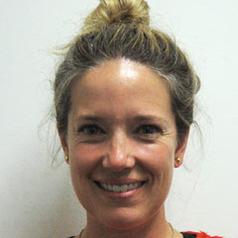
Sarah Stonbely
Director, State of Local News Project, Northwestern University
Sarah Stonbely, PhD is the director at the State of Local News Project at Northwestern University.
Sarah received her doctorate in political communication, media sociology, and journalism studies from NYU in 2015. Recent prior positions include research director at the Center for Cooperative Media, research associate on the News Measures Research Project, as well as postdoc at George Washington University in the School of Media + Public Affairs. Sarah’s expertise is in journalism culture and practice, local news ecosystems, media policy, and research methodology.
Less ![]()

Sarah Tillott
Senior Lecturer, Faculty of Health, Southern Cross University
Dr Sarah Tillott is a researcher and teacher with university qualifications in both health and education, and fifteen years of at university teaching experience. Dr Tillott is a resilience researcher who has created a series of innovative resilience resources that demonstrate behaviour changes as measured by her PhD project, The Dusty and Friends Resilience Pack. She has built the University of Wollongong’s (UOW) Academic Resilience Framework, and has collaborated with the Cronulla Sharks and St George Illawarra Dragons to facilitate a culture of resilience in the local community. Dr Tillott is currently a senior lecturer at Southern Cross University, overseeing the Masters of Health care leadership with special interest in how to build resilience in individuals using health, education and sporting platforms.
Sarah has also presented for national sporting organisations such as Tennis Australia and corporate organisations including NAB bank. With a background in health, education and traditional medicines, Sarah has a keen interest in improving health in vulnerable communities in accordance to the Sustainable development goals.
Less ![]()
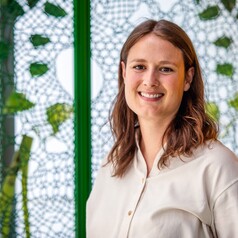
Sarah Treby
Postdoctoral Research Fellow, RMIT University
Postdoctoral Researcher in Soil, Peatland, and Restoration Science
Less ![]()
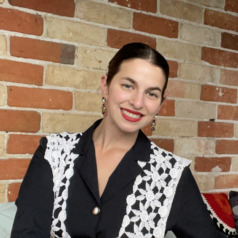
Sarah Vrankovich
PhD Candidate, RMIT University
Sarah Vrankovich (She/Her) is a PhD Candidate at RMIT University and researcher under the School of Population Health at Curtin University. With a particular focus on sexual violence and primary prevention strategies, Sarah's research centres on the role of sexuality education in shaping young people's attitudes, knowledge, and skills surrounding sexuality.
Less ![]()
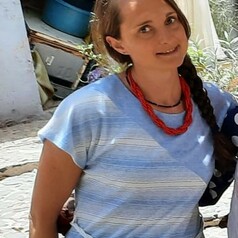
Sarah Walker
Visiting postdoctoral researcher and adjunct professor, Università di Bologna
Less ![]()
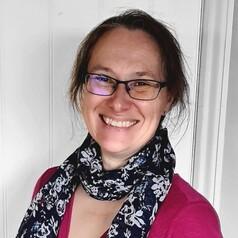
Sarah Wall
Senior Lecturer in Education, Anglia Ruskin University
Sarah’s career began as a Year 5 primary school teacher in Suffolk. She later became a Special Educational Needs Co-ordinator (SENCo) and Senior Teacher. As a SENCo, she developed an interest in children and young people with social, emotional and mental health (SEMH) difficulties. Consequently, in Cumbria, she worked as a Specialist Teacher for social, emotional and behavioural difficulties (SEBD) and, latterly, autism spectrum conditions (ASC). In these roles, Sarah supported individual children, young people and their families, but also with a variety of settings delivering continuing professional development for school and local authority staff.
Most recently, Sarah has lectured at the University of Northampton - mostly in Special Educational Needs and Inclusion (SENI) - and at the University of Birmingham on their Distance Learning SEBD and Autism (Children’s) courses. Whilst lecturing, she has worked with professionals from a variety of settings including: mainstream schools; special schools; pupil referral units; secure units; alternative provision and residential schools both here in the UK and Worldwide.
Sarah’s research interests lie in the areas of Special Educational Needs, Disability and Inclusion, specifically attachment and relationships. Her PhD is entitled ‘The Attuned School’: the effects, and effectiveness, of developing relationships between pupils with attachment difficulties and significant adults. Sarah’s research explored whole school approaches to supporting individuals with attachment needs. She is also particularly interested in the cross-over in presenting behaviours between autism, pathological demand avoidance and attachment. With the latter, she has conducted small-scale research working with teachers on the Coventry-Grid (Moran, 2010) assessment tool.
Less ![]()

Sarah Warby
Casual Academic, Physiotherapy, La Trobe University
Sarah Warby is a shoulder physiotherapist with the Melbourne Shoulder Group, researcher(PhD) and university sessional tutor.
Sarah Warby is a shoulder physiotherapist with the Melbourne Shoulder Group, researcher(PhD) and university sessional tutor.
Less ![]()
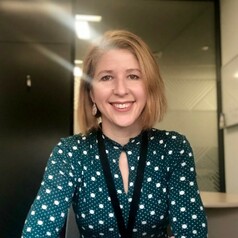
Sarah Whitcombe-Dobbs
Senior Lecturer in Child and Family Psychology, University of Canterbury
Sarah is a Child and Family Psychologist and Senior Lecturer in the Faculty of Health at the University of Canterbury. She has worked as a psychologist and in other roles with children and families for over 20 years. Her area of research interest is assessment and intervention with families who have ongoing involvement with child protection services, and she specialises in the assessment of complex developmental and trauma-related difficulties.
Less ![]()
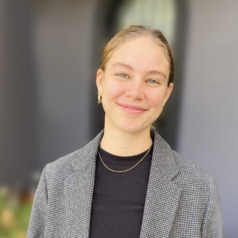
Sarah Wilson
PhD Candidate in Nanotechnology & Innovation Governance, University of Technology Sydney
Sarah is a PhD Candidate at the Institute for Sustainable Futures (ISF). Her research examines the governance of technological innovation, with a focus on the commercial governance of toxic engineered nano-materials (ENMs). Through this, Sarah works across frontier science (including nanotechnology and quantum technologies) to explore the responsible development, application, and governance of rapidly evolving and complex technoscientific innovations. She approaches these uncertain phenomena through the lens of social governance frameworks. Sarah has previously worked in the space of industrial chemicals governance, collaborating with government and industry to better understand and manage the use of hazardous chemicals in commercial supply chains.
Less ![]()
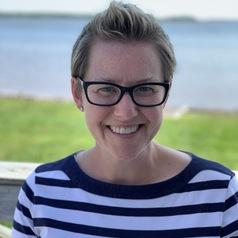
Sarah Woodruff
Professor, Director of the Community Health, Enviornment, and Wellness Lab, University of Windsor
I am a multidisciplinary researcher who strives to advance the health and wellness among Canadian children and adolescents. More specifically, I am a community-based researcher who investigates the environmental influences (e.g., family, peers, school, media) on nutrition, physical activity, body image, and other health outcomes. Much of my research is done in partnership with various public health units, the Bulimia and Anorexia Nervosa Association (BANA), Leadership Advancement for Women and Sport (LAWS), and the Ontario Student Nutrition Program.
Less ![]()
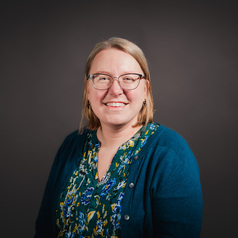
Sarah E. Patterson
Research Investigator at the Survey Research Center at the Institute of Social Research, University of Michigan
Dr. Patterson’s research addresses whether and how social norms and family composition influence caregiving behaviors for family members. She studies the role of shifting family composition among older adults, such as increasing complexity and kinlessness. She also has a line of work on attitudes about caregiving for older adults. Dr. Patterson is currently completing both demographic and focus group studies regarding family and other unpaid care for older adults with dementia with National Institute on Aging funding. She’s also experienced in knowledge translation and dissemination activities relating to data and research.
Less ![]()
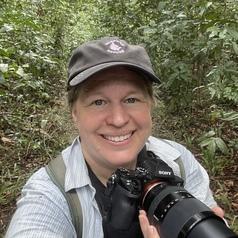
Sarah E. Turner
Associate Professor, Geography, Planning and Environment, Concordia University
Sarah Turner is a primate behavioural ecologist whose research focuses on disability and physical impairment, behavioural plasticity, and the impacts of human-induced environmental change. She conducts research on free-ranging Japanese macaques at the Awajishima Monkey Center in Japan, and collaborative research on bearded and blond capuchin monkey behaviour and conservation in Brazil. She has a PhD in Anthropology (Primatology) from the University of Calgary, and was a post-doctoral fellow in Biology at McGill University before starting her position at Concordia University.
Less ![]()
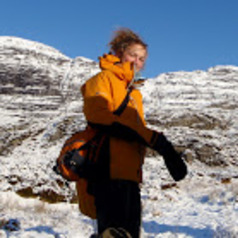
Sarah Elizabeth Dalrymple
Senior Lecturer in Conservation Ecology, Liverpool John Moores University
Sarah Dalrymple is a Senior Lecturer in Conservation Ecology at Liverpool John Moores University, UK. She is a plant ecologist focusing on threatened species and responses to global threats such as climate change, and on the efficacy of conservation interventions.
Sarah has undertaken various practical conservation initiatives including reintroduction and habitat restoration, has reviewed threatened plant translocations, and contributed to policy documents, including co-authoring the IUCN Reintroductions Guidelines (2013) and the Scottish Code for Conservation Translocations (2014). Sarah is currently working across the conservation and forestry sectors to find common approaches to minimise biodiversity loss including opportunities to use translocations as bioassays of environmental change, and explore the use of assisted colonization to avoid species extinctions due to climate change.
Sarah is Programme Leader for BSc Wildlife Conservation at LJMU, and also an Associate Editor for the journals Ecological Solutions and Evidence and British and Irish Botany.
Less ![]()
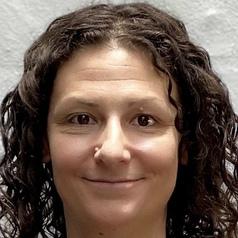
Sarah G. Phillips
Professor of Global Conflict and Development at The University of Sydney; Non-Resident Fellow at the Sana'a Center for Strategic Studies, University of Sydney
Sarah G. Phillips is Professor of Global Conflict and Development at the University of Sydney, a Future Fellow with the Australian Research Council, and a Non-Resident Fellow at the Sana'a Centre for Strategic Studies (Yemen). Her research draws from years of in-depth fieldwork (particularly in Yemen, Somaliland, Iraq, Kenya, and Jordan), and focuses on international intervention in the global South, knowledge production about conflict-affected states, authoritarianism, and critical terrorism studies.
She lived in Yemen for nearly four years, and has published two books and many articles on its politics, the latest of which is "Trivializing Terrorists: How Counterterrorism Knowledge Undermines Local Resistance to Terrorism” (with Nadwa al-Dawsari), Security Studies (Open Access, 2023): https://www.tandfonline.com/doi/full/10.1080/09636412.2023.2250253?src=
Sarah's most recent book, "When There Was No Aid: War and Peace in Somaliland", was awarded the Australian Political Science Association’s biennial Crisp Prize for the best scholarly political science book (2018-20). It was also listed as a ‘Best Book of 2020’ by Foreign Affairs, and a ‘Book of the Year' (2020) by Australian Book Review, and was shortlisted for both the Conflict Research Society’s 'Book of the Year Prize' (2021), and the African Studies Association’s 'Bethwell A. Ogot Book Prize' (2021).
Less ![]()
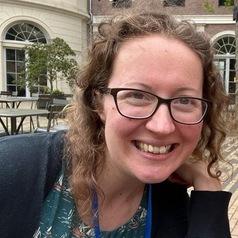
Sarah M. Hughes
Assistant Professor in Human Geography, Northumbria University, Newcastle
I am a Political Geographer interested in forced migration, resistance, citizenship and creative practice. I have a longstanding interest in how systems of asylum governance across Europe are lived, experienced and resisted. This has included research on the role of creativity within immigration detention centres, resistance to dispersal accommodation, and the everyday lives of those who have recently have been granted refugee status.
My work has been widely published in academic books and journals, including an edited collection on Critical Geographies of Resistance. I've also worked closely with support organisations to improve refugee voice within organisation structures, fed my research into debates in Parliament, and worked with local authorities on integrating systems to try and improve support for new refugees.
Less ![]()
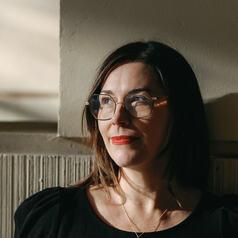
Sarah Marie Wiebe
Assistant Professor, School of Public Administration, University of Victoria
Dr. Sarah Marie Wiebe grew up on Coast Salish territory in British Columbia, BC. She is an Assistant Professor in the School of Public Administration at the University of Victoria and an Adjunct Professor at the University of Hawai'i, Mānoa with a focus on community development and environmental sustainability. She is a Co-Founder of the FERN (Feminist Environmental Research Network) Collaborative and has published in journals including New Political Science, Citizenship Studies and Studies in Social Justice. She is the author of Life against States of Emergency: Revitalizing Treaty Relations from Attawapiskat with UBC Press, 2023. Her book Everyday Exposure: Indigenous Mobilization and Environmental Justice in Canada's Chemical Valley (2016) with UBC Press won the Charles Taylor Book Award (2017) and examines policy responses to the impact of pollution on the Aamjiwnaang First Nation's environmental health. Alongside Dr. Jennifer Lawrence (Virginia Tech), she is the Co-Editor of Biopolitical Disaster and along with Dr. Leah Levac (Guelph), the Co-Editor of Creating Spaces of Engagement: Policy Justice and the Practical Craft of Deliberative Democracy. At the intersections of environmental justice and citizen engagement, her teaching and research interests emphasize political ecology, policy justice and deliberative dialogue. As a collaborative researcher and filmmaker, she worked with Indigenous communities on sustainability-themed films including To Fish as Formerly. She is currently collaborating with artists from Attawapiskat on a project entitled Reimagining Attawapiskat funded through a SSHRC Insight Development Grant. Sarah is also a Co-Director for the Seascape Indigenous Storytelling Studio, funded through a SSHRC Insight Grant with research partners from the University of Victoria, University of British Columbia and coastal Indigenous communities.
Less ![]()

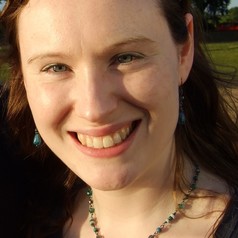
Sarah-Jane Page
Associate Professor, Faculty of Social Sciences, University of Nottingham
Sarah-Jane is a sociologist of religion, specialising in gender and sexuality. After working at Aston University for over a decade, she joined the University of Nottingham as an Associate Lecturer in 2023. She is currently working on projects related to abortion attitudes and anti-abortion activism, abuse in religious contexts pertaining to the Independent Inquiry into Child Sexual Abuse, and school protests in relation to sex education teaching. Previously, she completed a PhD on clergy motherhood and Anglican clergy husbands at the University of Nottingham and undertook various postdoctoral positions at Durham University and the University of Nottingham respectively. Between 2009-2011, She worked on the large grant, Religion, Youth and Sexuality: A Multi-faith Exploration, with Professor Andrew Yip and Dr Michael Keenan. Utilising a mixed methods approach, this research focused on 18- to 25-year-olds from a variety of religious backgrounds in order to understand attitudes and practices around sexuality.
Less ![]()
- Market Data





















